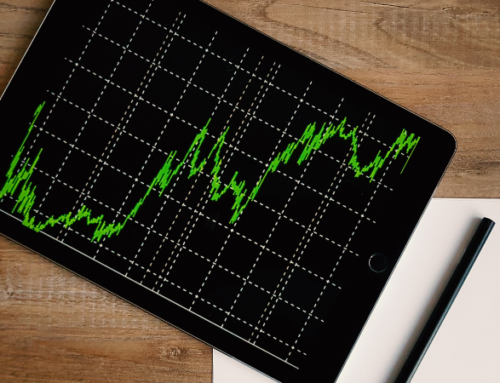Energy procurement management is an important aspect of controlling energy costs, especially for businesses located in deregulated energy states. In these deregulated territories, customers have the opportunity to purchase their energy supply from third-party energy providers in an attempt to save money. In these markets, having an energy procurement strategy is critical to combat rising energy costs, volatile energy futures markets, and complex market pricing. Many consumers in these markets elect to hire the services of a professional energy broker to help them navigate these choices. In this article, we will outline the energy procurement management process, the best practices to implement in your energy strategy, and why thousands of businesses across the country trust Diversegy to oversee their procurement plans.
What Is Energy Procurement Management?
Energy procurement management is the strategic process of sourcing and purchasing electricity or natural gas to meet a business’s energy needs while balancing cost and risk. It differs from energy management, which focuses on how energy is used efficiently inside a facility. Procurement is about securing the right supply at the right price and energy contract structure.
Effective energy procurement requires businesses to analyze their historical usage patterns, evaluate suppliers, and negotiate favorable contract terms that align with both budgetary goals and operational requirements. At the same time, procurement demands careful risk management to understand the financial impact of a procurement contract. For example, what is the risk of entering into a block + index contract if LMP prices rise by 20% over the contract term? Procurement managers and energy brokers need to understand the comprehensive impact of contract terms and pricing conditions in order to be effective and meet budget goals.
In today’s unpredictable energy landscape, successful procurement management is less about simply buying power and more about protecting the business from financial exposure.
Why Energy Procurement Management Matters For Businesses
Energy procurement management matters for businesses to control energy costs. Energy prices are continually rising and becoming increasingly unpredictable. This is creating significant financial exposure for organizations without a procurement strategy. For example, a business might enter into a 2-year fixed electricity contract with a supplier from September 2025 to September 2027. Here is how a business with a procurement strategy might manage this contract compared to one with no strategy:
No Procurement Strategy
An organization without an energy procurement strategy might wait until July or August 2027 to start shopping and searching for renewal prices. While taking action like this can be effective, it lacks any sort of market strategy and leaves the business subject to market prices at the time of shopping.
Effective Procurement Strategy
An effective strategy might involve determining future target prices when the contract first starts (in September 2025). The business, or its energy brokerage firm, might start modeling 2027 and 2028 electricity futures contracts each month throughout the contract term. They will monitor future prices to see when those prices fall below the pre-set target price. If they do, the business might execute another fixed contract, or price hedge, in order to secure a lower future price.
Without careful planning, businesses can lock into poor supplier agreements that drive up costs and limit flexibility for years. In short, failing to manage procurement strategically can lead to higher expenses, missed savings opportunities, and unreliable energy supply, risks that proactive procurement management seeks to eliminate.
The Energy Procurement Management Process
An effective energy procurement management strategy should follow a structured process. While this process can vary from company to company, it should include the following core elements:
Needs Evaluation
The first step of any effective procurement strategy is to evaluate the business’s energy consumption patterns, budgetary goals, and risk tolerance. In this needs analysis, the business or broker should determine the best-fit energy contract structure based on these elements. The chart below outlines the risk spectrum for different energy supply plans.

A business with lots of off-peak usage, might elect to enter into a hybrid energy contract that allows them to float off-peak hours on the lower-cost index market. To evaluate the effectiveness of this strategy, one might use historical usage and market data to forecast potential cost savings. While this strategy might prove to be historically effective, future risk should be considered. The evaluation should also include the upside risk, should those off-peak index prices rise by X percent. This comprehensive forecast will allow the business to decide on its best purchasing strategy.
Supplier RFP
After the specific procurement strategy has been determined, the next step of the process is to develop an RFP that can be sent to multiple energy suppliers. This RFP should include price structure, billing accounts, historical usage, and specific contract terms. Once this RFP has been responded to by all suppliers, the customer can determine the winning supplier and continue to the next step of the process. Please note that the winning supplier should be determined by a variety of factors – not just price alone. In addition to price, customers should also consider the supplier’s credit, history, and regulatory complaints.
Contract Negotiation
The next step of the procurement process includes negotiating specific contract terms. Customers should evaluate key contract terms, such as material change clauses, energy bandwidth clauses, early termination fees, price inclusion/exclusion elements, post-contract terms, and more. These energy contract terms can be quite complicated. We recommend utilizing the services of an experienced energy broker or attorney in order to fully understand the agreement terms and conditions.
Market Monitoring
Once the contract has been finalized and signed, the procurement strategy should include some sort of ongoing market monitoring. Many energy customers make the mistake of waiting until their current contracts are near expiration before starting to shop for renewal rates. An effective market monitoring strategy allows customers to identify future price dips so they can actively hedge costs by entering into future-dated energy contracts.
How Diversegy Supports Energy Procurement Management
Diversegy’s team of energy market experts has been assisting our commercial and industrial clients in their energy procurement strategies for many years. Due to our deep market knowledge and expertise, we help our clients evaluate their usage patterns and choose the best-fit procurement products that will meet their budgetary goals. Furthermore, we actively monitor these contracts to ensure ongoing execution of the procurement strategy. Whether you are a large energy user looking to audit your existing procurement process for holes or a smaller commercial user with no real strategy, we can help. Contact our team today for a free evaluation and to learn more about developing an effective energy strategy.



